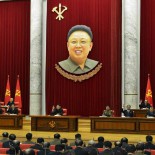KJU Visits Sinu’iju Textile and Chemical Fiber Mills
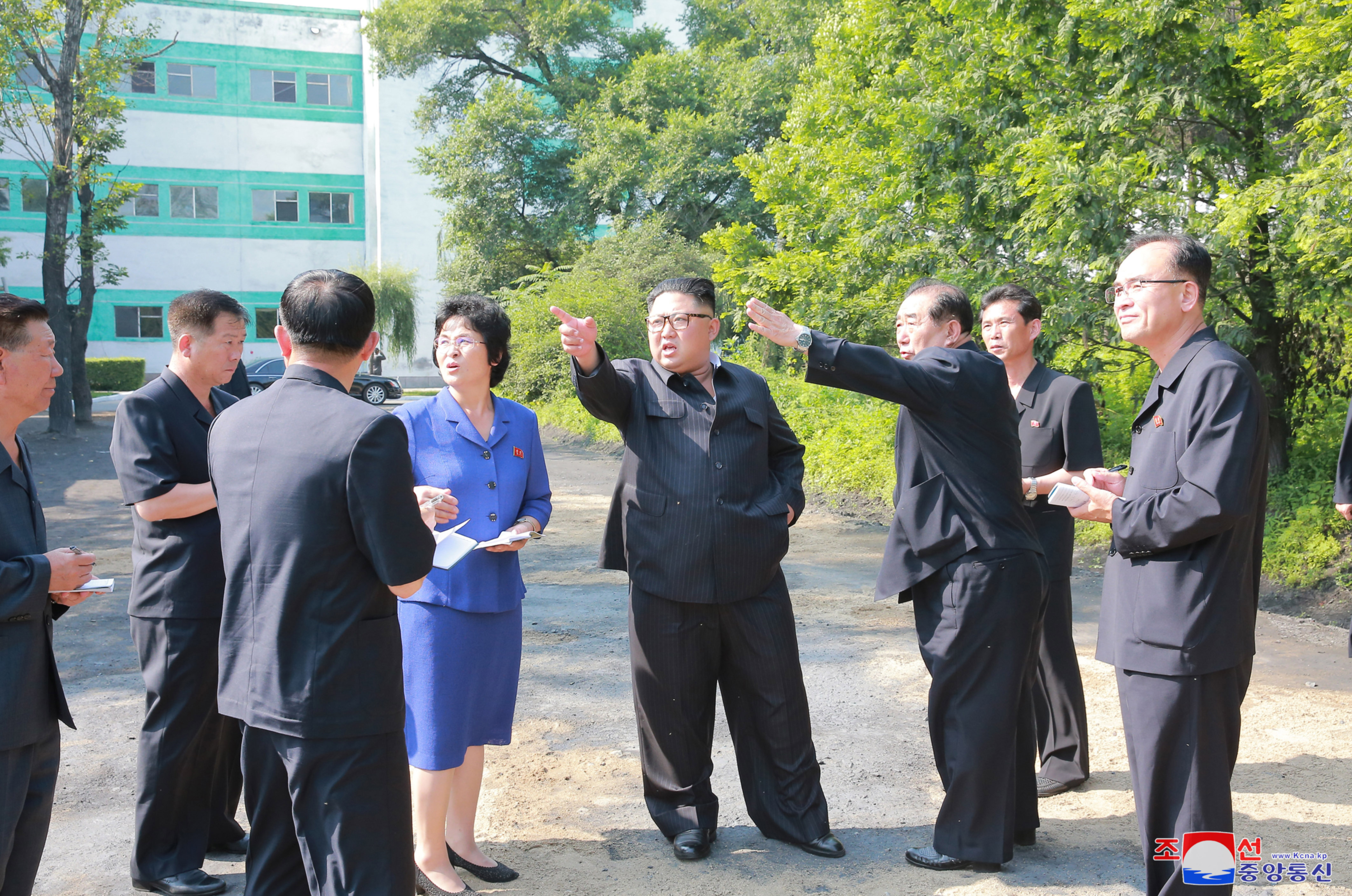
WPK Vice Chairman An Jong Su (foreground, 2nd from the right) briefs Kim Jong Un on the layout of the Sinu’iju Textile Mill (Photo: Rodong Sinmun).
KJU’s last observed appearance was his visit to Sinu’iju Cosmetics Factory with Ri Sol Ju
DPRK state media reported on July 2 (Monday) that Kim Jong Un (Kim Cho’ng-u’n) provided on-the-spot guidance to the Sinu’iju Textile Mill and the Sinu’iju Chemical Fiber Mill. Also in attendance were Workers’ Party of Korea (WPK) Vice Chairman and WPK Light Industry Department Director An Jong Su (An Cho’ng-su), senior WPK Central Committee cadres Hwang Pyong So (Hwang Pyo’ng-so’), Han Kwang Sang (Han Kwang-sang), O Il Jong (O Il-cho’ng), Kim Song Nam (Kim So’ng-nam) and Hwang Yong Chol (Hwang Yo’ng-ch’o’l) and leading functionaries of the Personal Secretariat Kim Chang Son (Kim Ch’ang-son) and Jo Yong Won (Cho Yo’ng-wo’n).
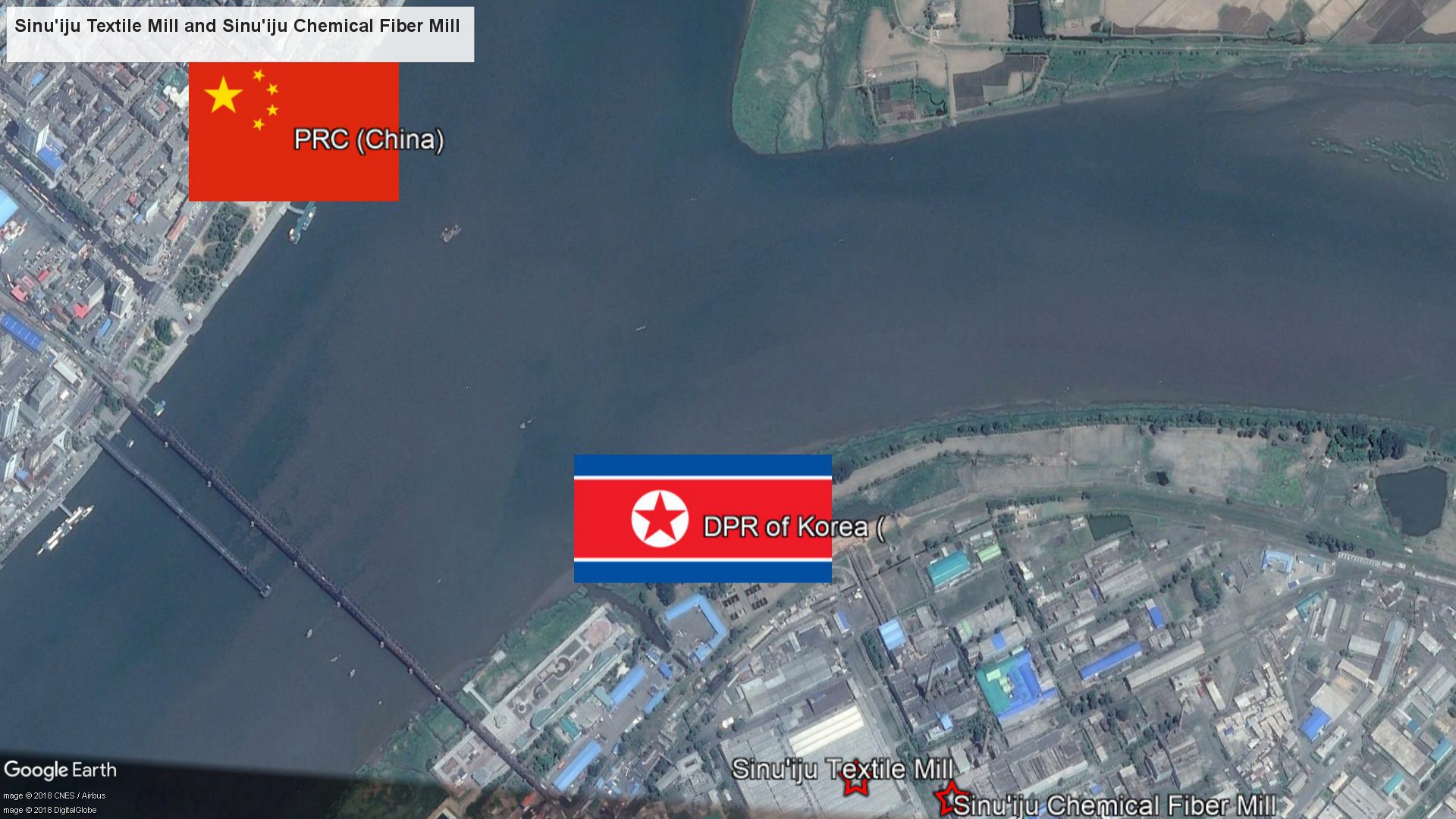
Overview of where the mills are located in Sinu’iju (Photo: 38 North DPRK Digital Atlas, Google image).
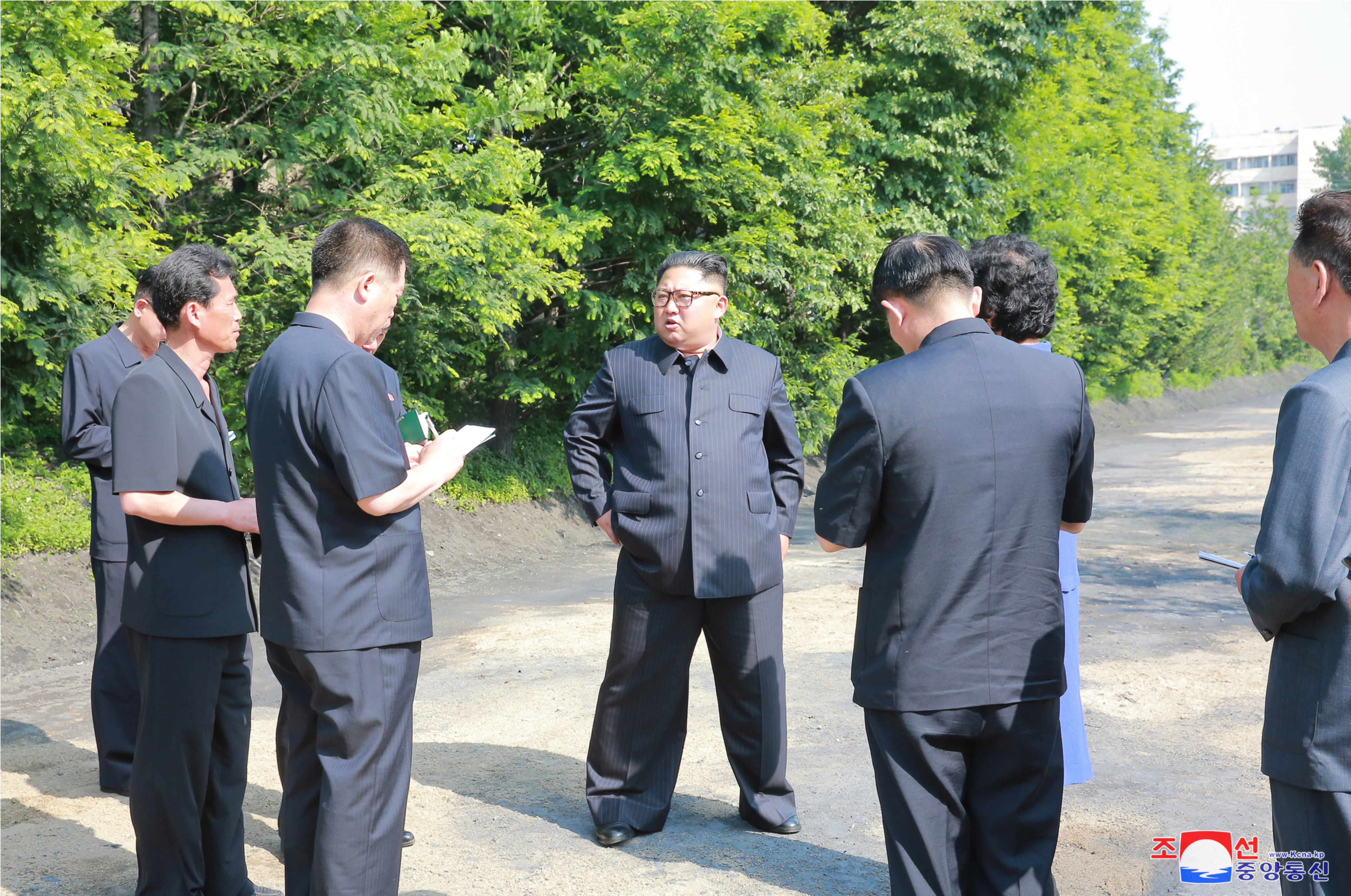
Kim Jong Un is briefed about the Sinu’iju Textile Mill (Photo: KCNA/KNS).
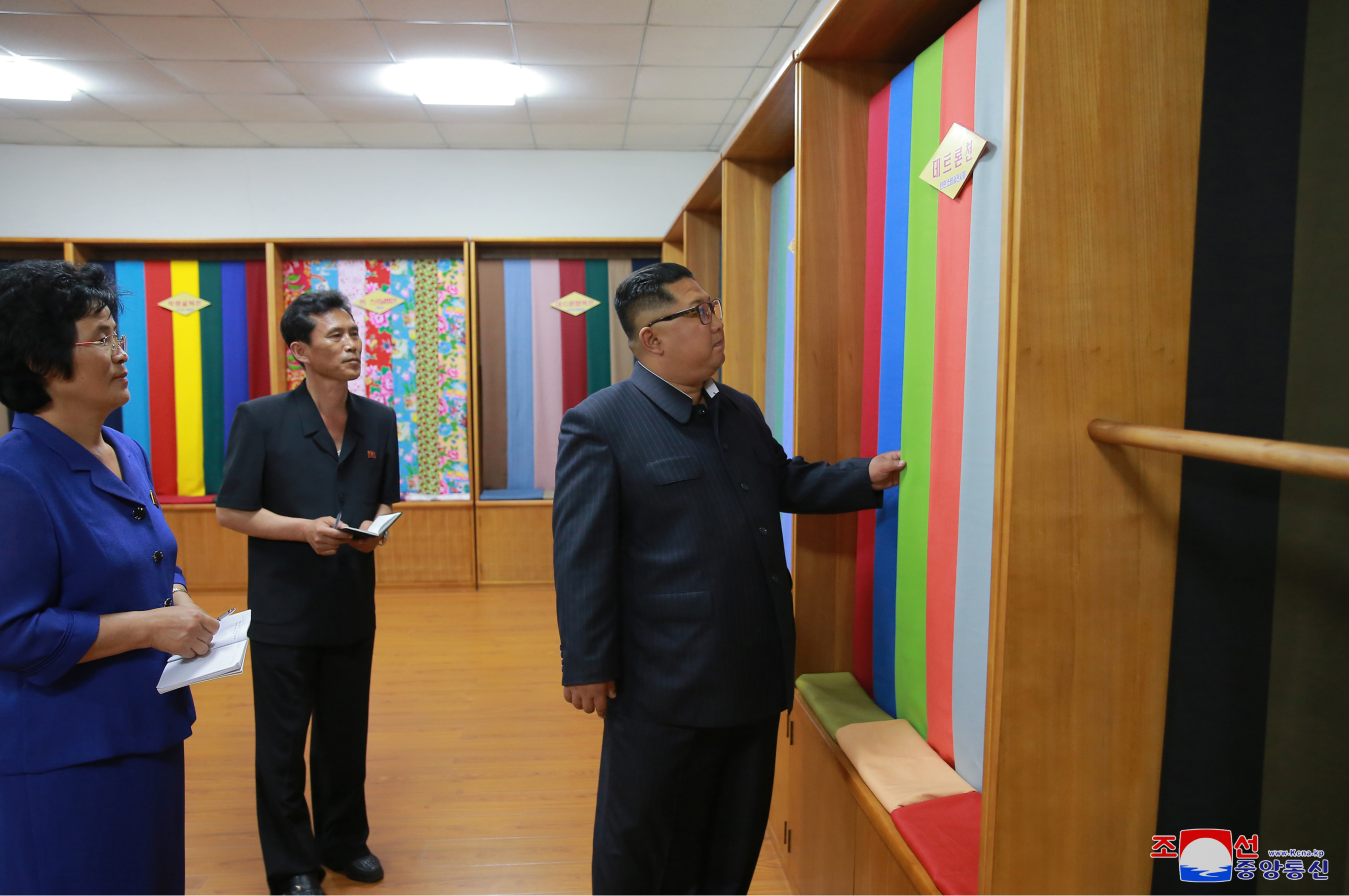
Kim Jong Un reviews products of the Sinu’iju Textile Mill (Photo: Rodong Sinmun/KCNA).
At Sinu’iju Textile Mill he stopped in at the room for the education of revolutionary history and a room displaying the mill’s institutional history. He noted that, “Sinu’iju Textile Mill, which went into operation in September 1959 thanks to the benevolent steps taken by President Kim Il Sung (Kim Il-so’ng) and has a long history and tradition in producing cloth necessary for the people’s living.” Kim Jong Un said that “all the spindles and looms of the mill are associated with the efforts of President Kim Il Sung and leader Kim Jong Il (Kim Cho’ng-il) who devoted themselves to solving the people’s clothing problem.”
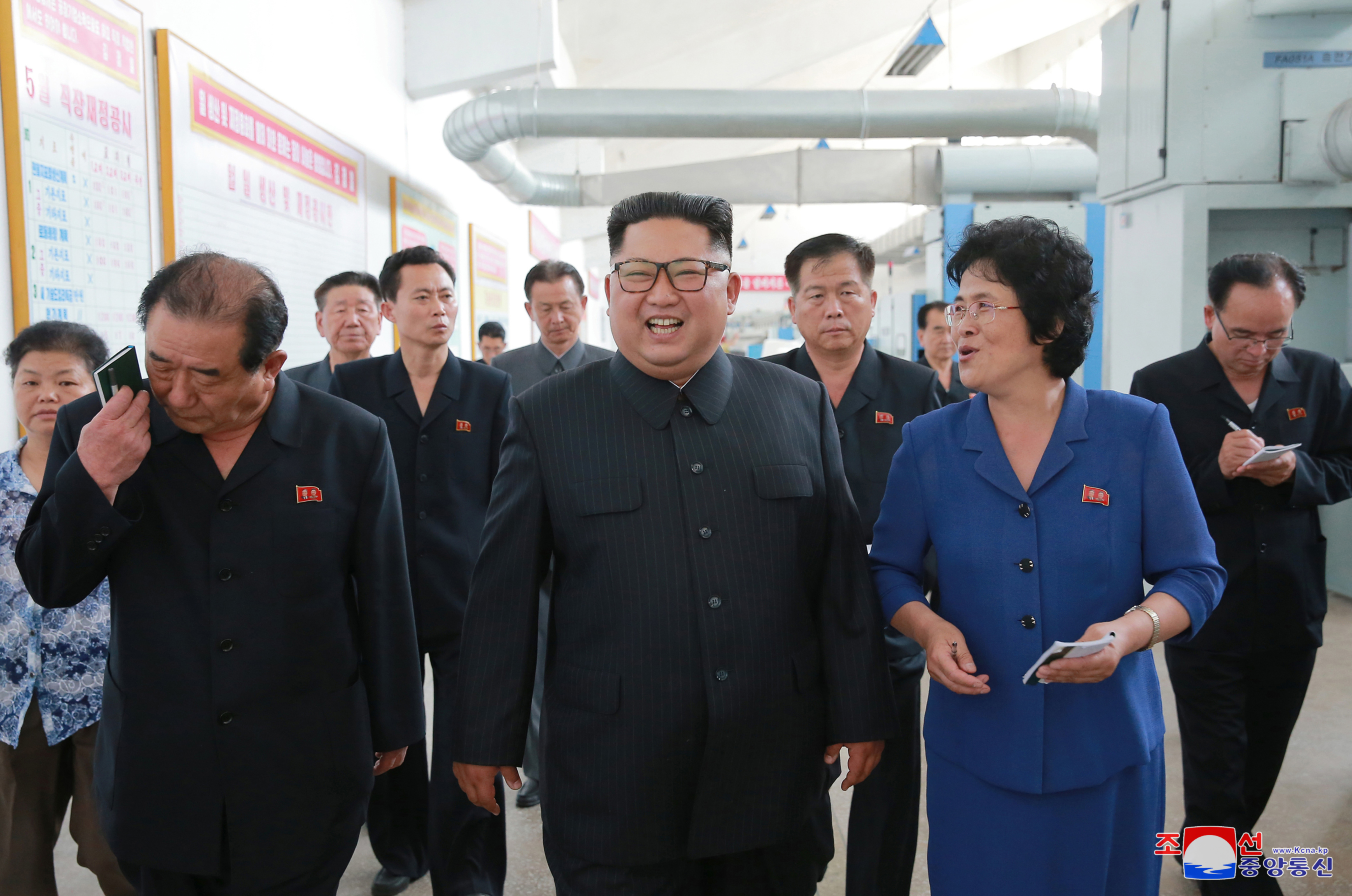
Kim Jong Un smiles whilst being briefed about production at Sinu’iju Textile Mill (Photo: KCNA/Rodong Sinmun).
As he toured various shops in the mill he learned “about its production and management” and was “briefed on the reality of the mill failing to fulfill its national economic plan every year.” Kim Jong Un “felt heartbroken to see the experienced mill, which is much associated with the leadership exploits of Kim Il Sung and Kim Jong Il and had made positive contributions to the development of light industry of the country in the past period, not retaining its proud tradition.”
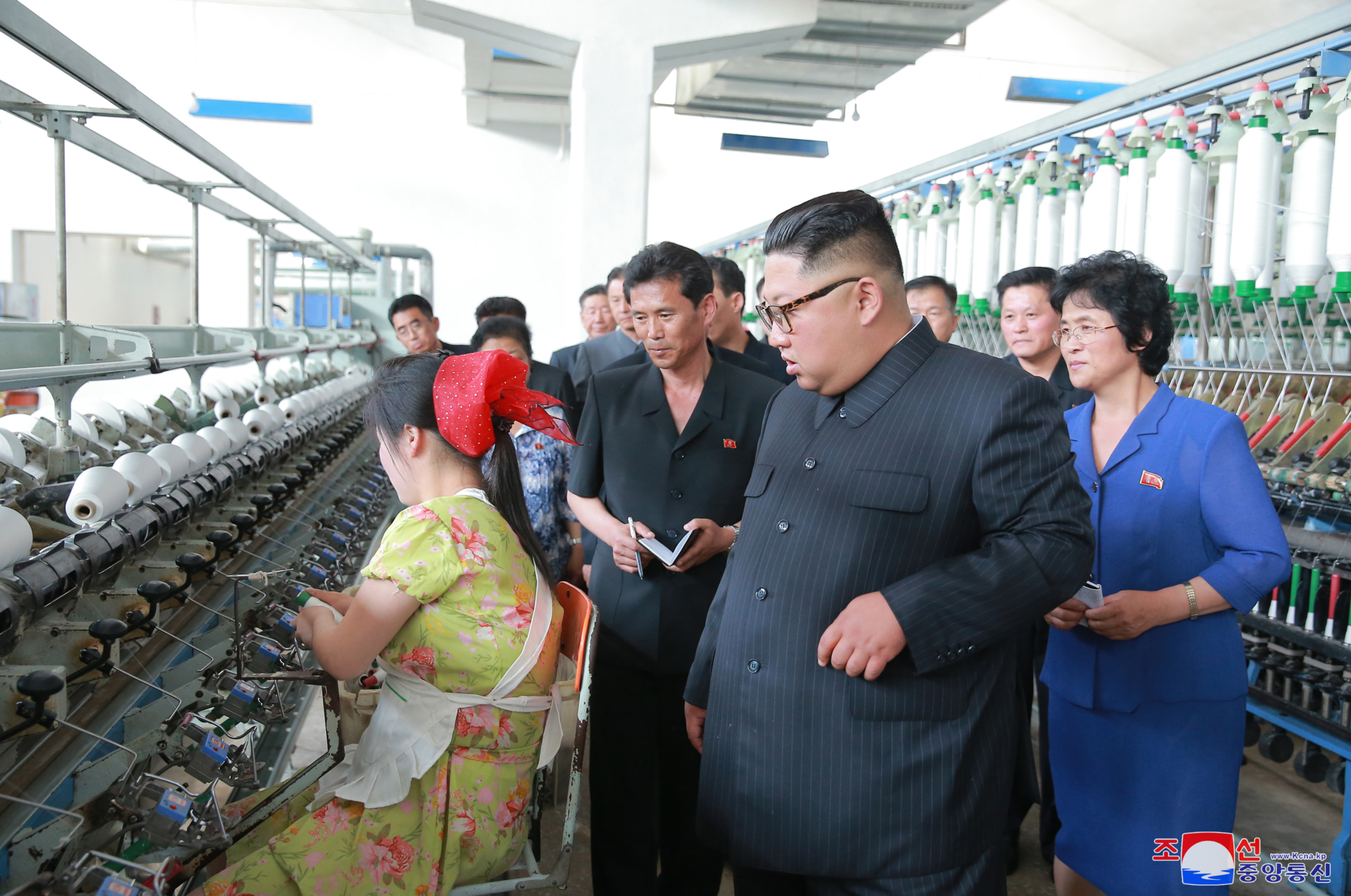
Kim Jong Un examines a spindle machine at Sinu’iju Textile Mill (Photo: KCNA).
Jong Un learned about the mill’s supply chain and the welfare of the mill’s employees and “pointed it that its party committee had not paid attention to the work of improving the employees’ working and living conditions.” He issued “detailed tasks and ways for rebuilding the mill on a modern basis as required by the present era” and said that to “radically develop the textile industry is very important in making a breakthrough for the improvement of the people’s standard of living.”
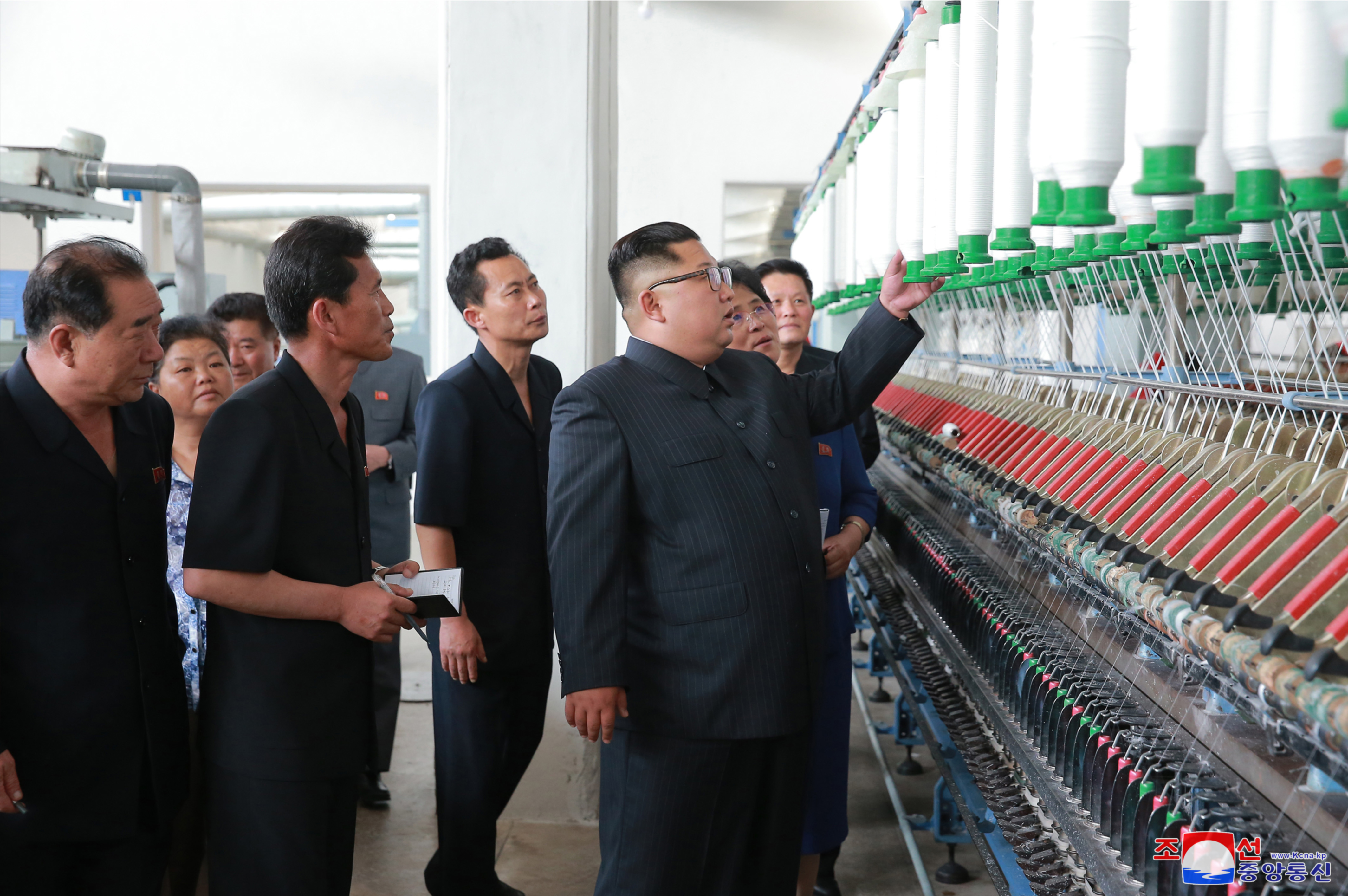
Kim Jong Un inspects machinery at Sinu’iju Textile Mill (Photo: KCNA).
He remarked that “the officials and workers of the mill should remodel the production buildings and the inside and outside of the mill while putting its production processes on a scientific and modern basis till the next year marking the (mill’s) 60th founding anniversary and thus proudly review the fact that the mill has grown to be a leading textile mill greatly conducive to the people’s standard of living under the guidance of the great Party.”
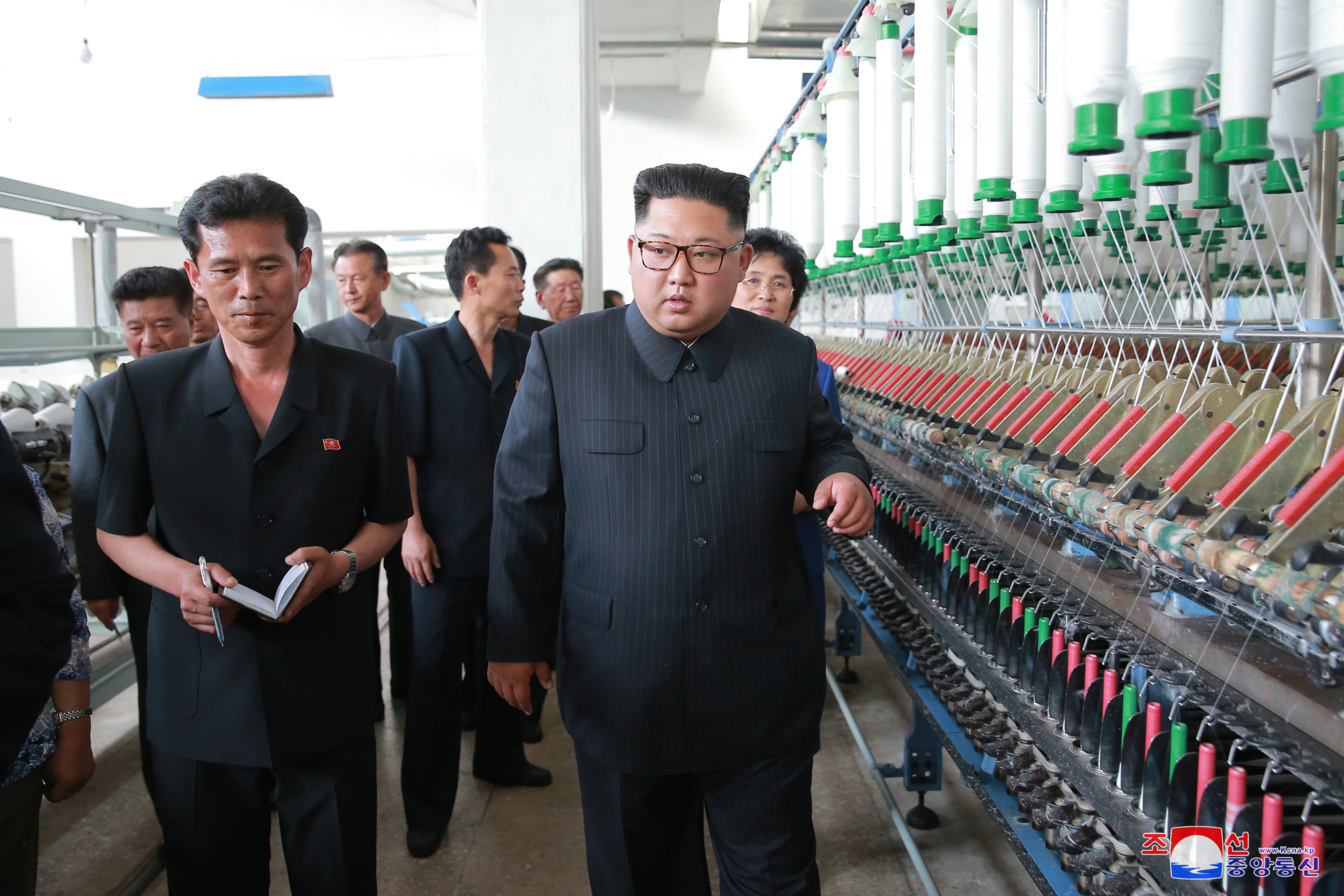
Kim Jong Un tours a a unit of the Sinu’iju Textile Mill (Photo: Rodong Sinmun).
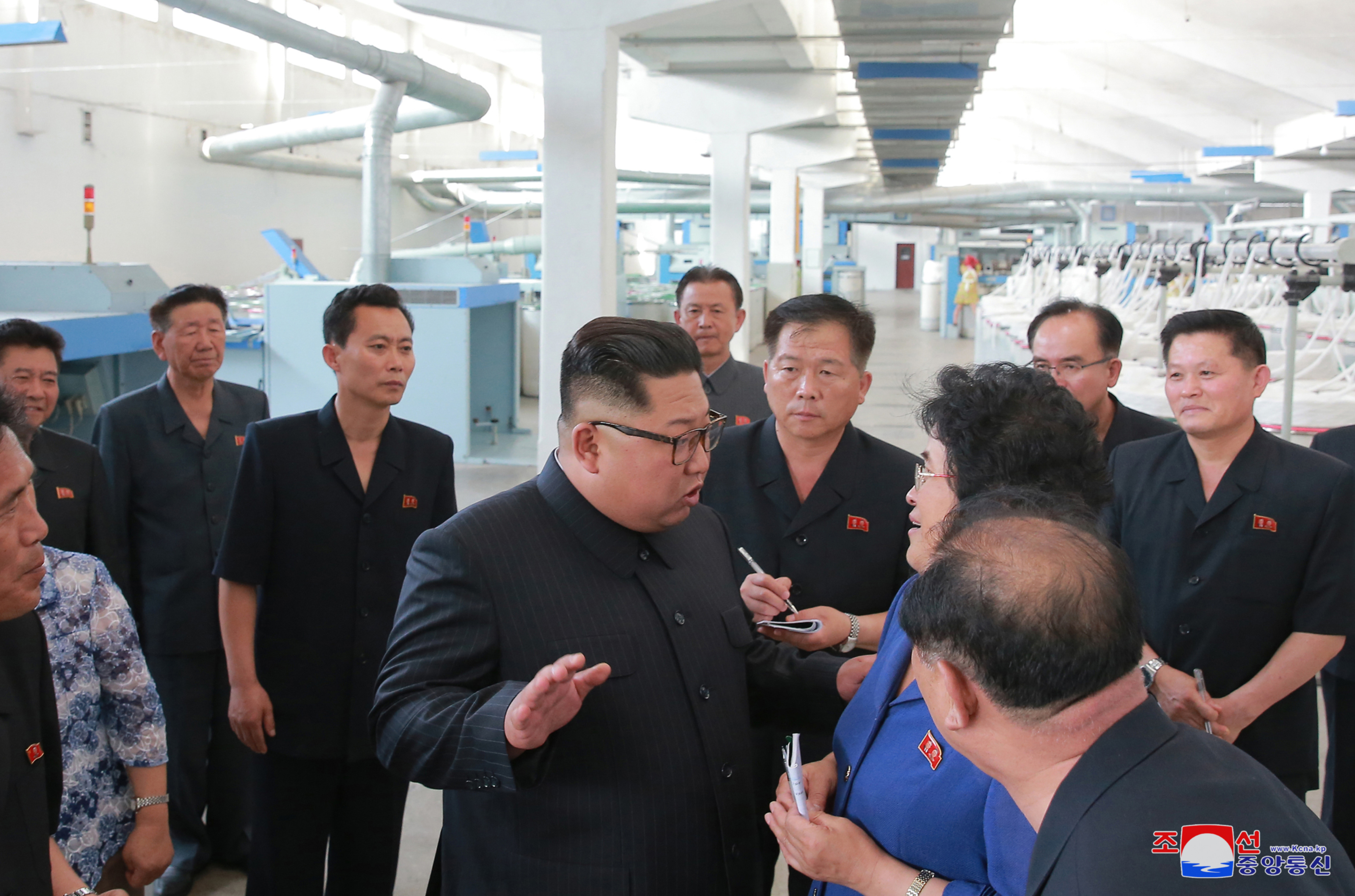
Kim Jong Un talks with a leading official of the Sinu’iju Textile Mill (Photo: KCNA).
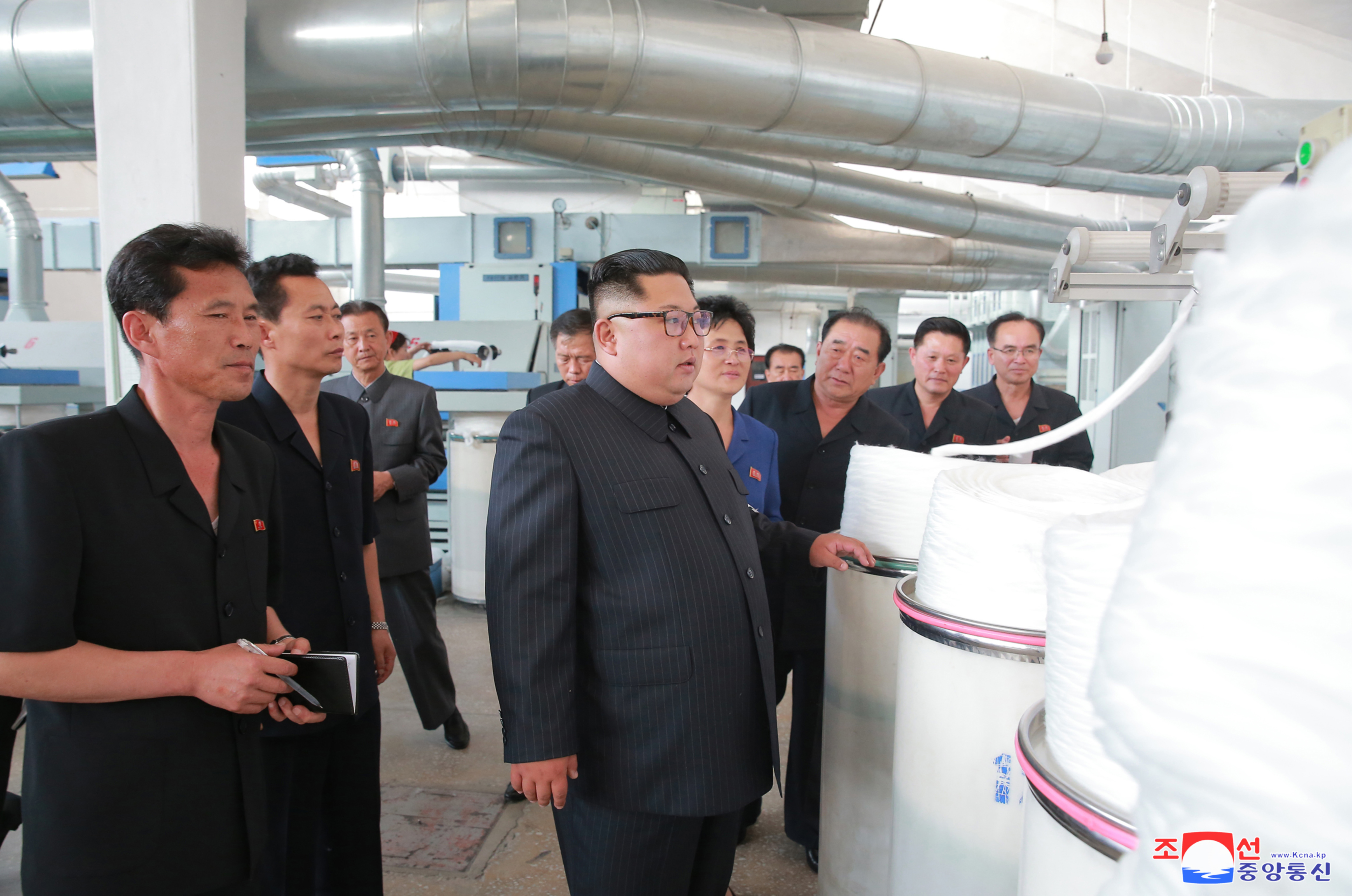
Kim Jong Un is briefed about material production at Sinu’iju Textile Mill (Photo: KCNA/Rodong Sinmun).
Kim Jong Un “designated the site for building the hotel and took a step for mobilizing the powerful building force.” He said that he was informed that “hostellers of the mill envied the hostels of the Pyongyang Kim Cho’ng-suk Textile Mill and the Pyongyang Kim Cho’ng-suk Silk Mill provided by the Party.” He said would “provide a hostel as wonderful as those.”
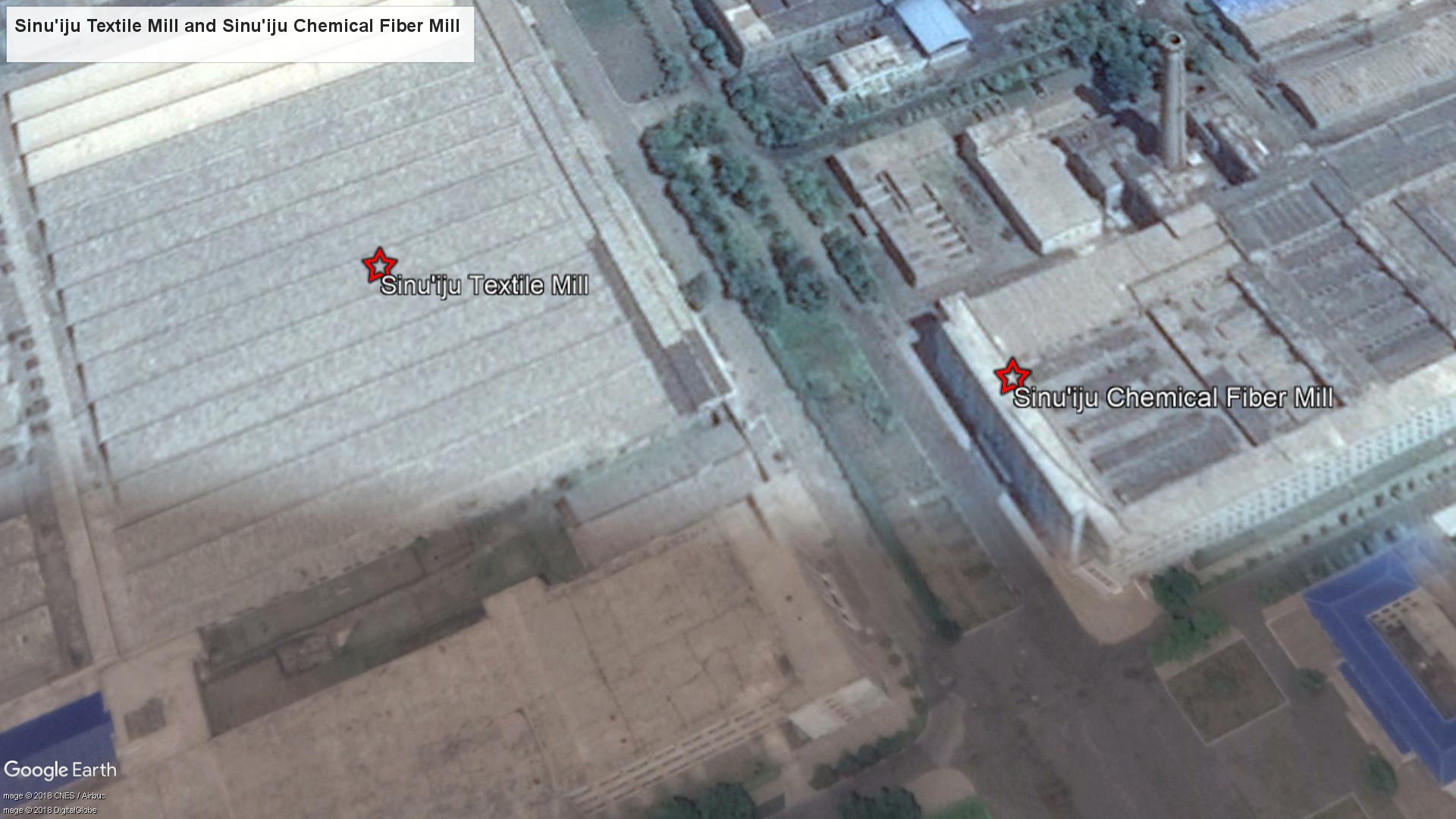
View of the location of Sinu’iju Textile Mill and Sinu’iju Chemical Fiber Mill (Photo: 38North DPRK Digital Atlas, Google image).
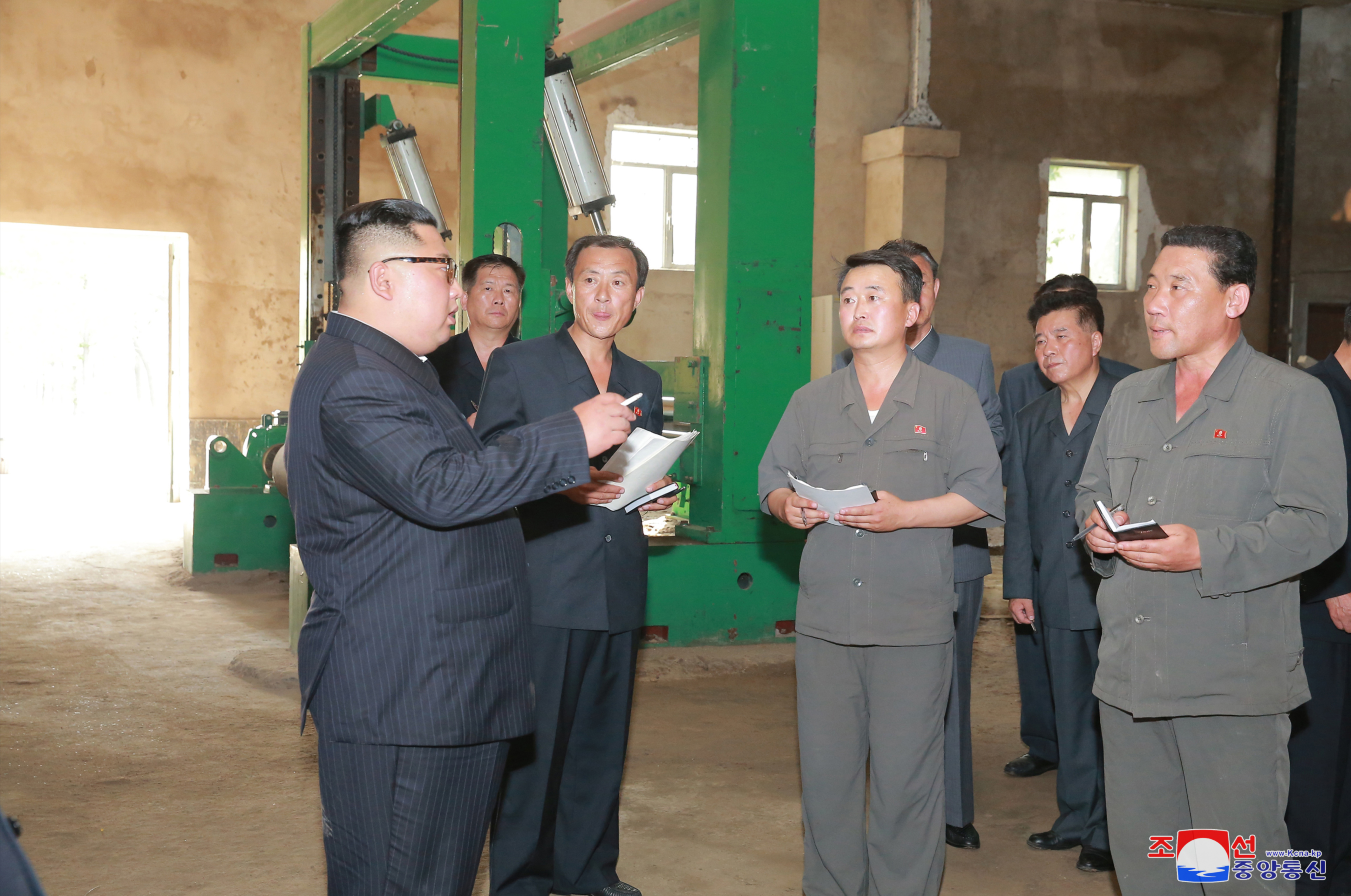
Kim Jong Un smokes a cigarette and talks to factory management during his visit to Sinu’iju Chemical Fiber Mill (Photo: Rodong Sinmun).
Jong Un also provided an on-the-spot inspection of Sinu’iju Chemical Fiber Mill. He began his visit at its revolutionary history education room and was briefed about mill’s production at its paper manufacturing workshop.
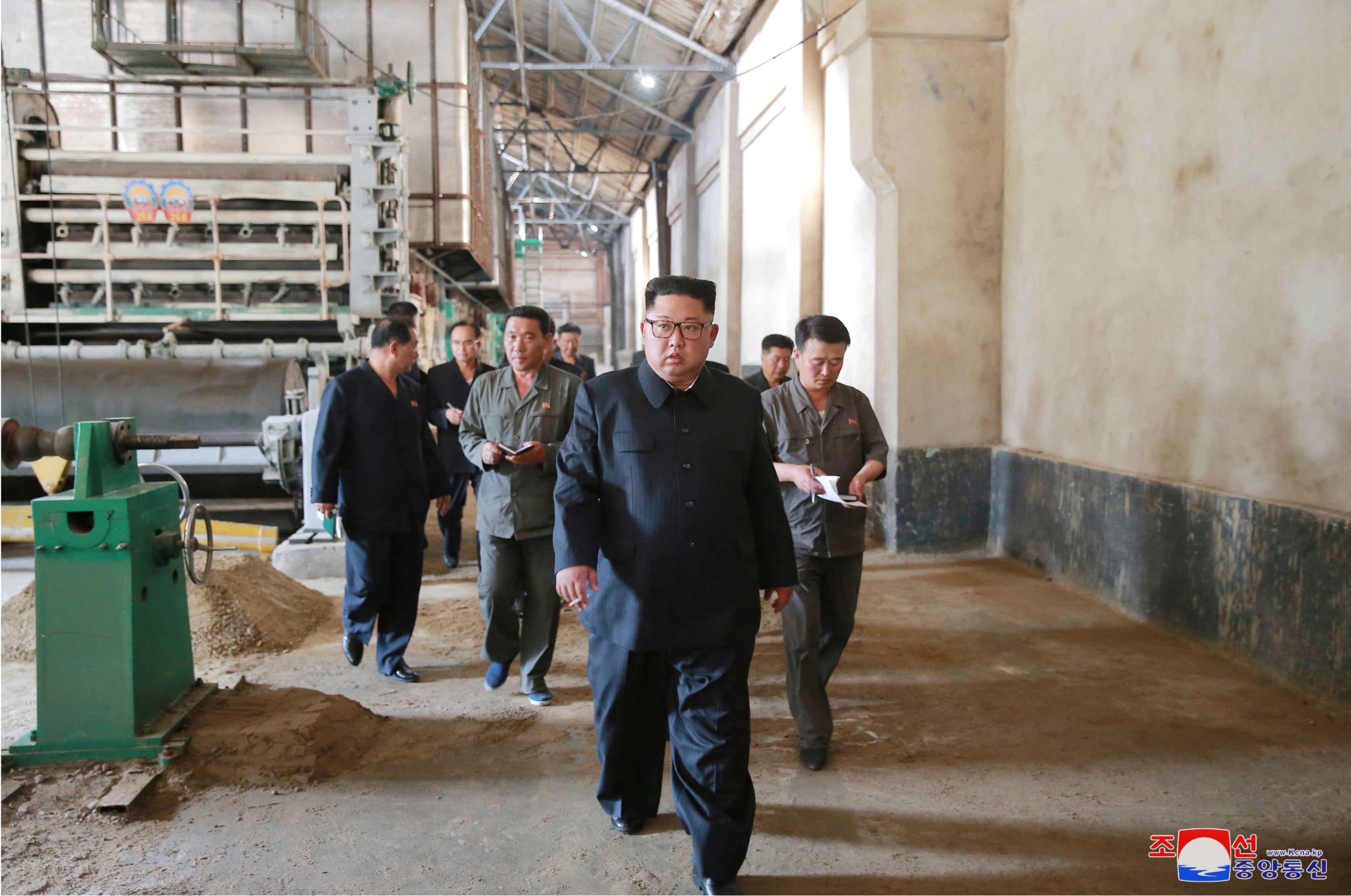
Kim Jong Un walks through the Sinu’iju Chemical Fiber Mill (Photo: KCNA).
He noted that “one of those entangled in the education of the rising generation, a top-priority work for the Party, is the fact that the demand for paper has not been full met” and he “stressed the need to upgrade the paper industry in reliance on the domestic resources and raw materials at any cost and thus sufficiently supply the paper necessary for the production of textbooks, reference books and notebooks for schoolers.”
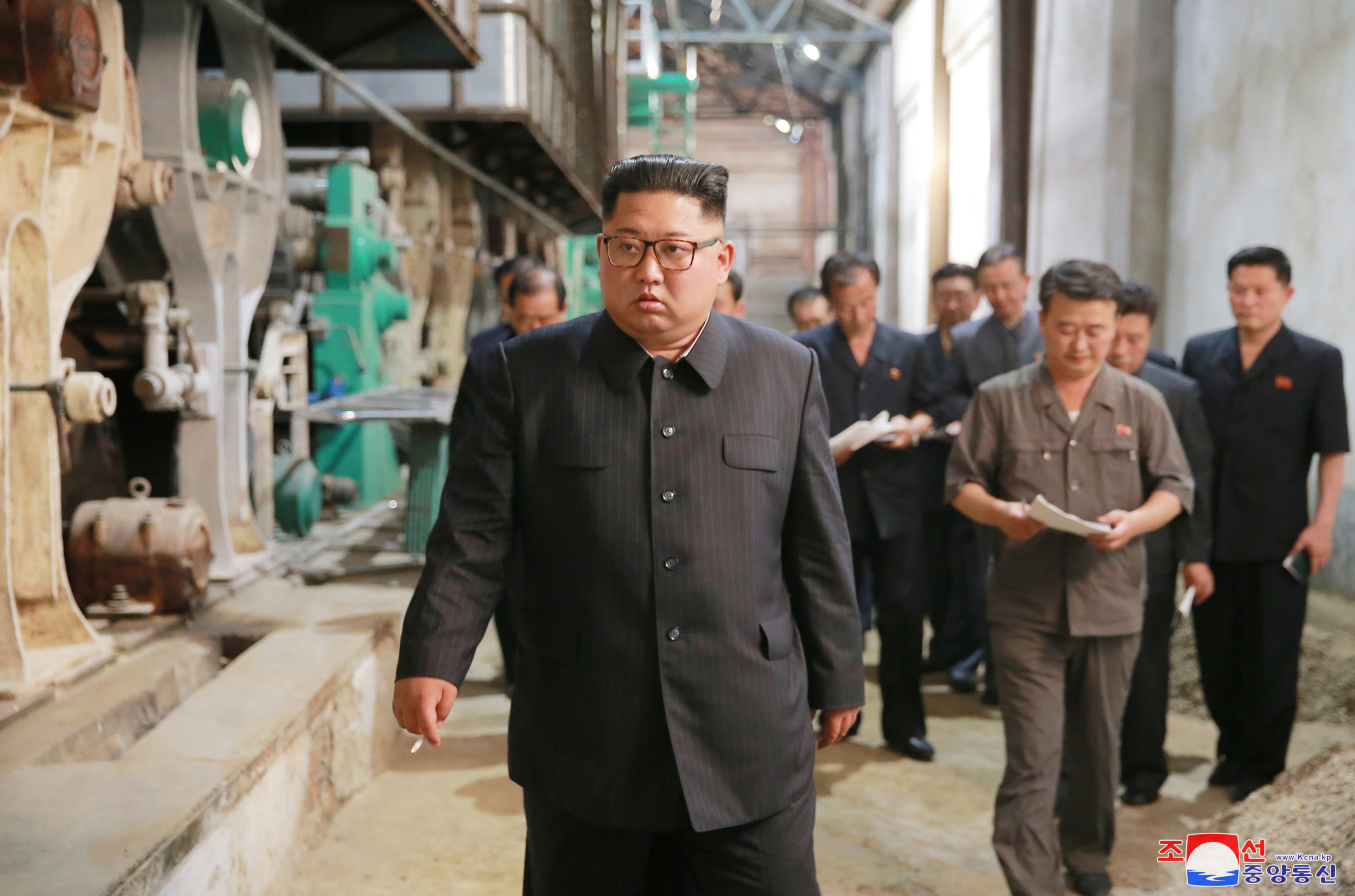
Kim Jong Un hold a cigarettes whilst walking through Sinu’iju Chemical Fiber Mill (Photo: Rodong Sinmun/KCNA).
Kim Jong Un examined the “paper produced on a trial basis with reeds as the raw material” and said “that will serve the purposed, stressing the need to further deepen the research for improving the quality and productivity of paper.” He expressed his “satisfaction over the fact that the possibility of the sufficient supply of raw materials was created with the increase of reed production on Pidan Island and the mill’s project for expanding the capacity of reed-based paper production is going at the last stage to open the prospect for settling the paper problem.”
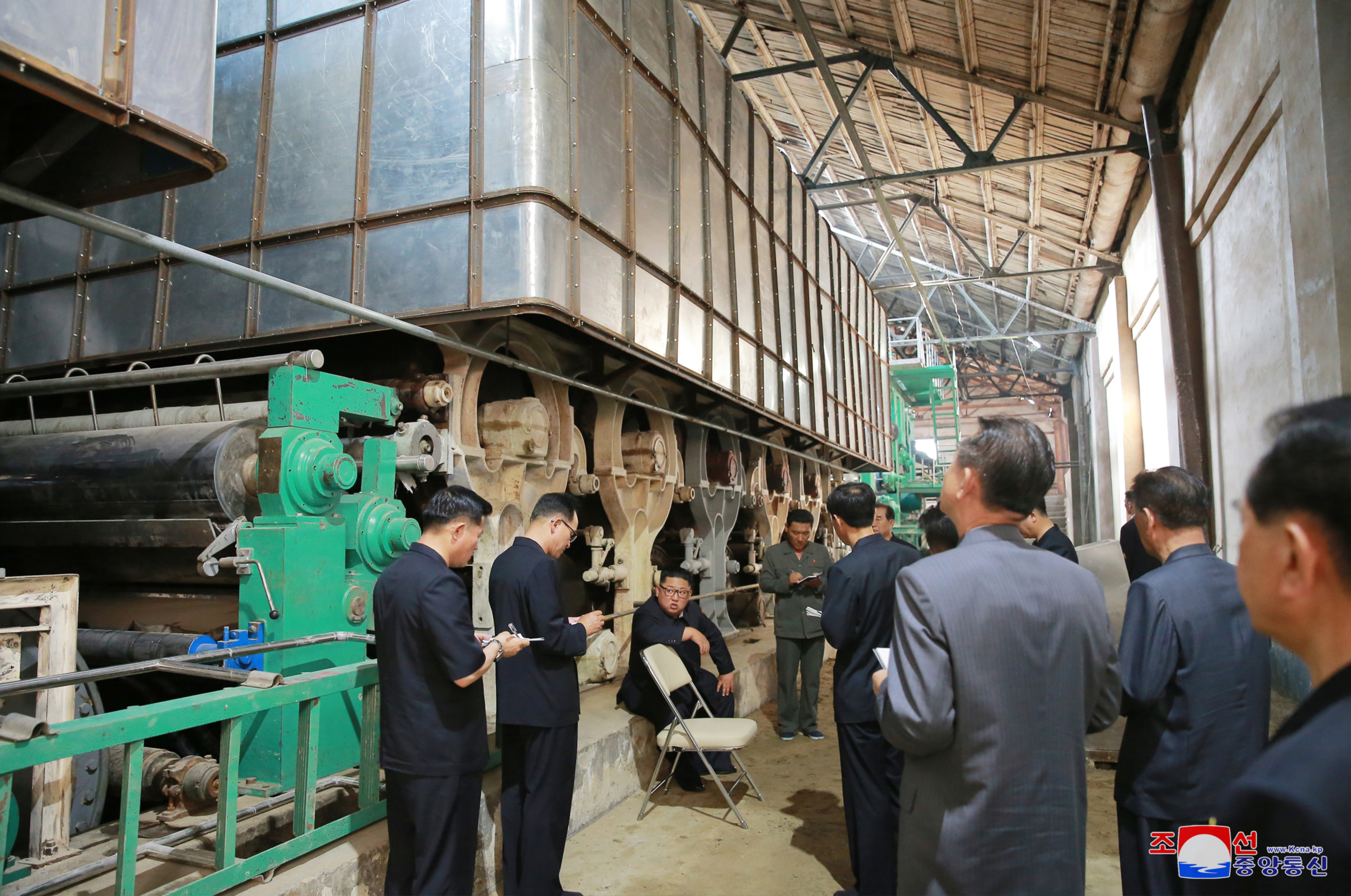
Kim Jong Un is briefed about manufacturing equipment at Sinu’iju Chemical Fiber Mill (Photo: Rodong Sinmun/KCNA).
As Kim Jong Un “acquainted himself with the upgrade of the factory” he “pointed out deviations and gave instructions for developing the mill.” He “seriously reproached officials for failing to take the pains to finish as early as possible the upgrading of the paper manufacturing process that had been prioritized and sought by the Party and to fulfill their [the officials’] responsibility and role.”
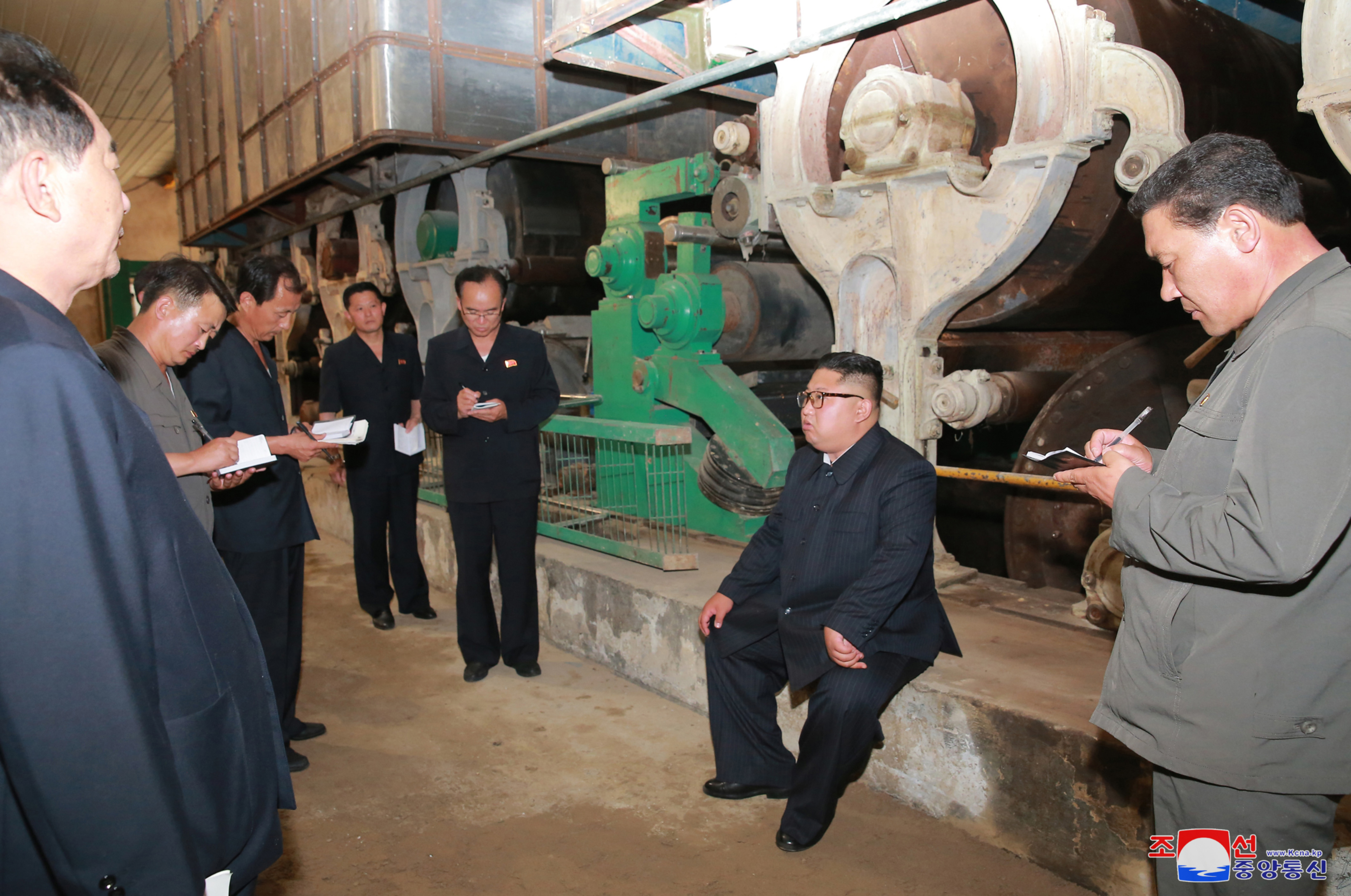
Kim Jong Un discusses industrial upgrades at Sinu’iju Chemical Fiber Mill (Photo: KCNA).
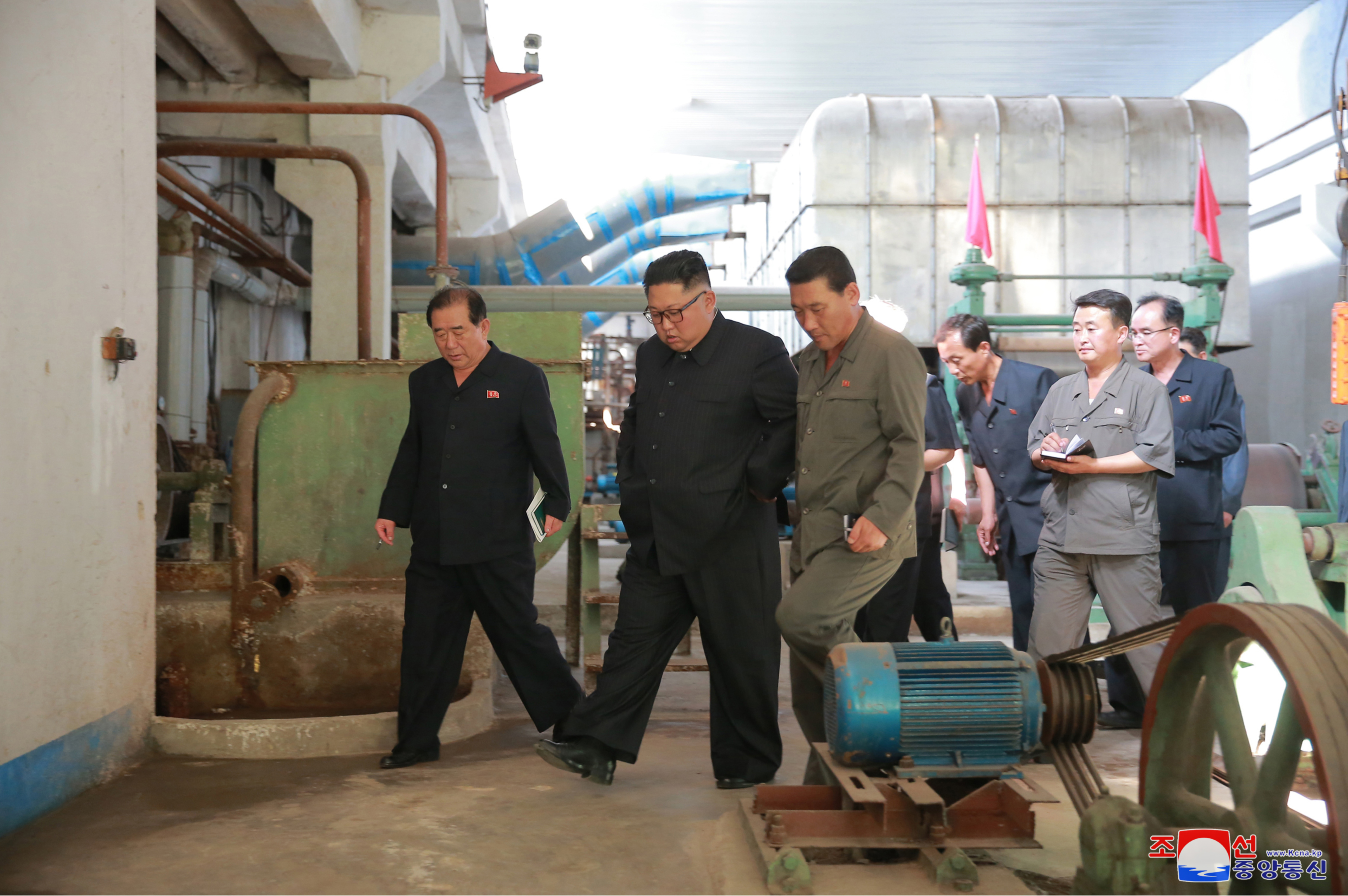
Kim Jong Un inspects Sinu’iju Chemical Fiber Mill (Photo: KCNA/Rodong Sinmun).
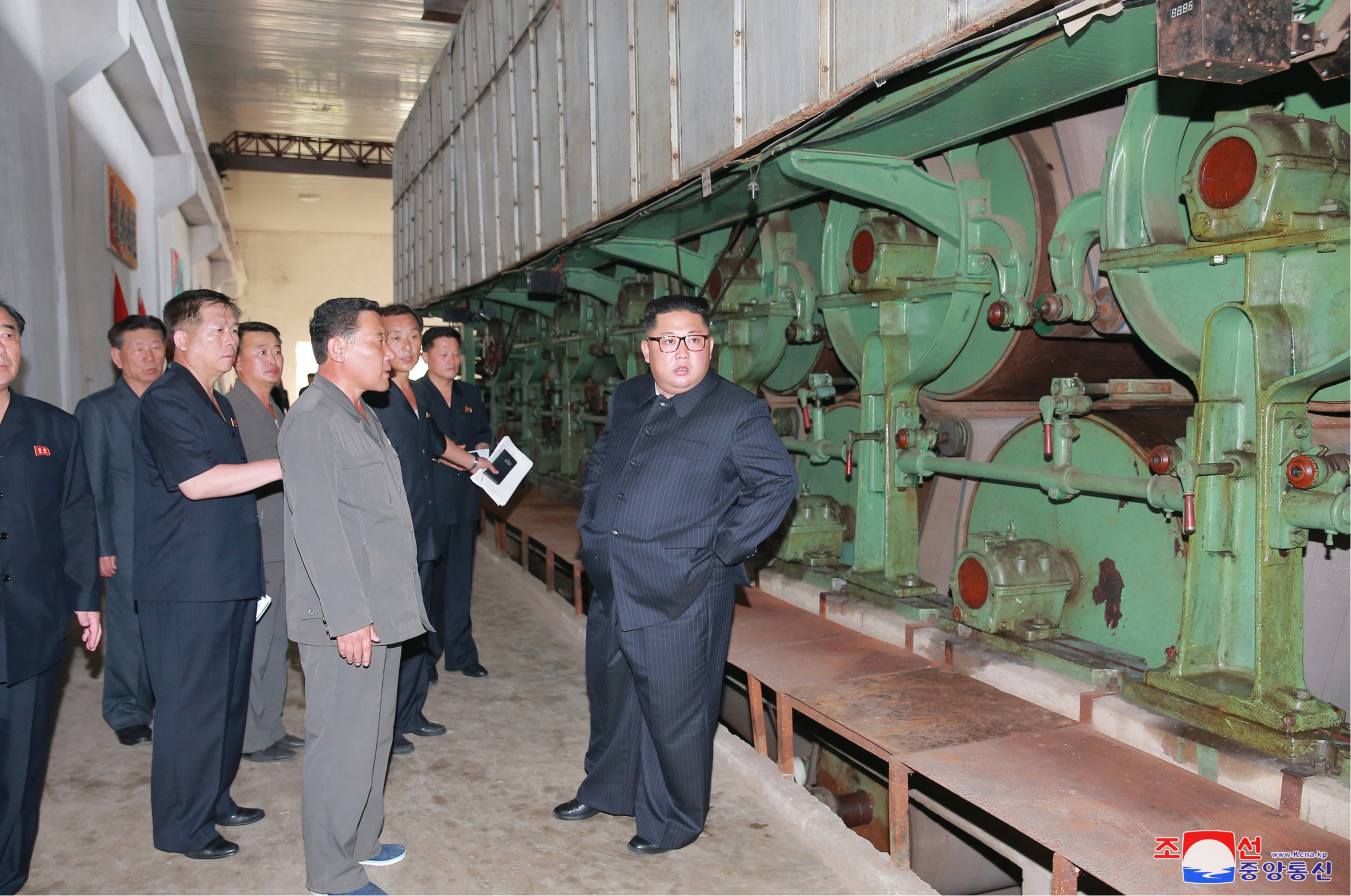
Kim Jong Un examines manufacturing equipment at Sinu’iju Chemical Fiber Factory (Photo: KCNA).
He instructed that the “officials urgently finish the paper production process upgrading, concentrate efforts on sprucing up the production buildings and accelerate the dredging project for the wharf for reed discharge.” He issued “tasks and ways for successfully upgrading the mill a befitting a unit associated with the leadership exploits of President Kim Il Sung and leader Kim Jong Il and massive producing paper with reed as its basic raw material.”
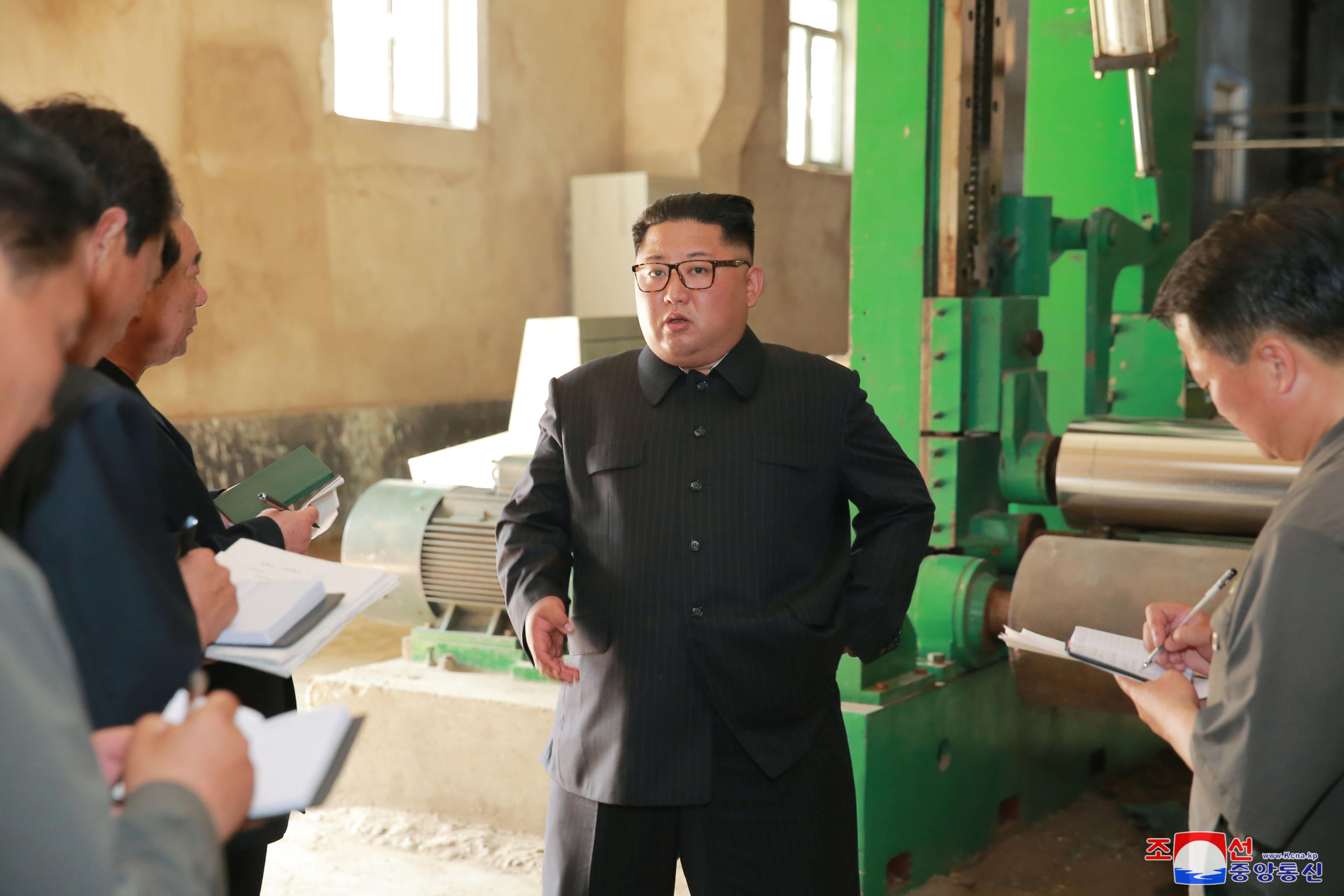
Kim Jong Un during his visit to Sinu’iju Chemical Fiber Mill (Photo: Rodong Sinmun).
